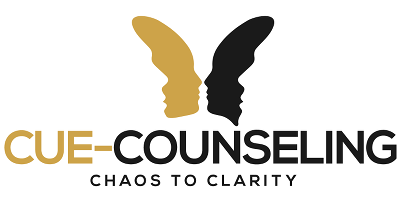How to Stop Panic Attacks: Symptoms, Causes, and Effective Coping Strategies
Has your anxiety ever spiraled out of control? Have you felt an overwhelming sense of panic seemingly out of nowhere? If so, you may have experienced a panic attack.
Panic attacks can be distressing, but understanding their causes and learning how to manage them effectively can help you regain control. In this guide, we’ll explore the symptoms, triggers, and best strategies for handling panic attacks.
What is a Panic Attack?
A panic attack is a sudden episode of intense fear or discomfort that peaks within minutes. Unlike general anxiety, panic attacks can occur unexpectedly and without a clear trigger. They can happen anywhere—at home, in public, or even during sleep.
Common Symptoms of a Panic Attack
Symptoms may vary from person to person, but typical signs include:
- A sudden sense of impending doom or fear of losing control
- Rapid heartbeat, excessive sweating, and trembling
- Shortness of breath or a choking sensation
- Dissociation or feeling detached from reality
- Chills or hot flashes
- Nausea, stomach cramps, or chest pain
- Dizziness, lightheadedness, or faintness
- Numbness or tingling in hands and feet
If you experience recurrent panic attacks, you may be dealing with Panic Disorder, a condition that requires long-term management.
What Causes Panic Attacks?
Several factors contribute to panic attacks, including:
1. Stress and Major Life Events
- The loss of a loved one, job stress, or significant life changes (e.g., moving, having a child) can trigger panic attacks.
2. Genetic and Biological Factors
- A family history of anxiety or panic disorders increases susceptibility.
- An overactive fight-or-flight response may contribute to panic attacks.
3. Childhood Trauma and Anxiety Disorders
- Unresolved past trauma or chronic anxiety may increase vulnerability to panic episodes.
4. Substance Use and Stimulants
- Excessive caffeine, smoking, and drug use can heighten anxiety and trigger attacks.
How to Stop a Panic Attack Quickly
Knowing that panic attacks are temporary can help you ride them out. Below are expert-backed strategies for stopping panic attacks in their tracks:
1. Grounding Techniques
Grounding helps you reconnect with the present moment and regain a sense of control. Try the 5-4-3-2-1 method:
- Name 5 things you can see
- Touch 4 objects nearby
- Identify 3 sounds
- Recognize 2 smells
- Focus on 1 taste
2. Controlled Breathing
Slow, intentional breathing activates the parasympathetic nervous system, which helps calm your body.
- Try Box Breathing: Inhale for 4 seconds, hold for 4 seconds, exhale for 4 seconds, and pause for 4 seconds.
- Deep Belly Breathing: Place a hand on your stomach and breathe deeply through your nose, ensuring your belly expands rather than your chest.
3. Change Your Environment
- Listen to soothing music or white noise
- Dim harsh lighting or change your surroundings
- Step outside for fresh air or engage in light movement
4. Engage in a Simple Activity
- Perform small, repetitive tasks like washing dishes, folding laundry, or walking around the block
- Writing or journaling can help externalize anxious thoughts
5. Use Positive Affirmations
Self-talk can be powerful in calming anxiety. Save affirmations in your phone or a journal to read during panic episodes:
- “This feeling is temporary; it will pass.”
- “I am safe and in control.”
- “My body knows how to return to a state of calm.”
6. Talk to Someone
Reaching out to a trusted friend, family member, or therapist can provide comfort and reassurance.
How to Prevent Future Panic Attacks
Long-term prevention involves identifying triggers and managing stress through:
- Regular Exercise: Physical activity reduces anxiety and stress hormones.
- Balanced Diet: Avoid excessive caffeine and sugar; opt for whole foods and hydration.
- Mindfulness and Meditation: Practices like Vipassana meditation help regulate emotions.
- Therapy and Counseling: Cognitive Behavioral Therapy (CBT) is highly effective in treating panic disorders.
Final Thoughts
Panic attacks can be overwhelming, but they are not insurmountable. By understanding their nature, implementing grounding techniques, and making lifestyle adjustments, you can regain control over your mental health.
If panic attacks persist, consider seeking professional help to explore deeper causes and develop a personalized treatment plan. Remember, you are not alone, and panic attacks are treatable.
